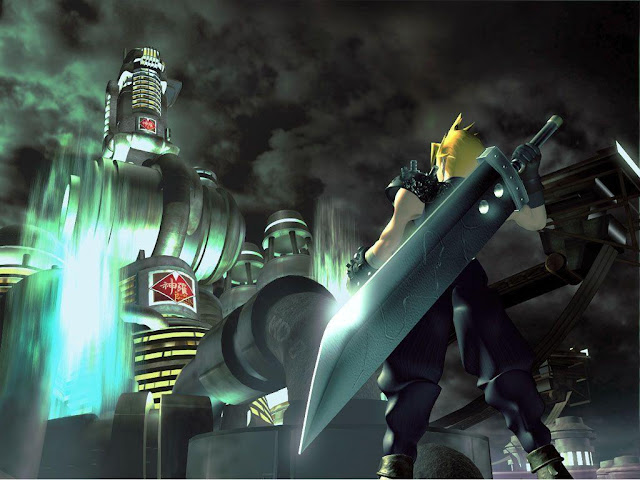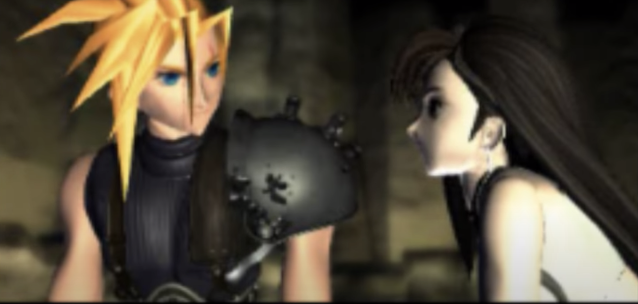 |
Spoilers for the original Final Fantasy VII follow
Few games have made as large of an impact on their respective genres and on the gaming industry as a whole as Final Fantasy VII did. Initially released on the Sony PlayStation in 1997, FFVII was a revolutionary title not just for JRPGs but for gaming altogether, creating a cinematic experience that the medium had never seen before. FFVII proved that games can tell emotional narratives unlike any other medium and the game has gone down in history as one of the greatest experiences video games have offered. FFVII’s story covers a wide amount but what ties it all together is an incredible message on the value of life and self-acceptance. The gaming industry has progressed significantly since FFVII’s release and when looking back at it, the game can definitely feel like a product of its time. However, FFVII’s age and shortcomings have not only reinforced why it became such an important landmark for games, but they also strengthen one of the core themes of the game’s narrative, becoming more than the sum of one’s own parts.
To understand how Final Fantasy VII’s accomplishes this, we need to examine three of the game’s main characters, Cloud, Aerith, and Sephiroth, and how they play into the story’s theme of self-acceptance. How we choose to accept ourselves ultimately affects the way we live our lives and throughout the individual journeys of these three characters, each one goes through the delicate process of self-discovery. Beginning with one of the game’s main party members, Aerith showcases the difficulties of self-acceptance and how proper emotional support, she is able to properly walk into her purpose.

Aerith is born as the last Cetra, a race with a unique connection to the planet that possesses unique abilities. At a young age, Aerith’s birth mother dies and in order to protect herself and her foster mother, Aerith tries desperately to hide who she is. Aerith, as a result, feels shame for who she is, especially after seeing her mother die at the hands of those who wished to take advantage of their powers. Even throughout this time of hiding, Aerith shows her true nature to help others by selling flowers she grew in a church for next to nothing to try to bring some form of happiness to the people residing in the bleak city of Midgar. It’s only through finding a friend in Cloud that Aerith finds the courage and opportunity to accept who she is by joining him in his mission to save the planet.
Aerith’s story depicts the true strength that can come from accepting who you are at heart. Aerith knew who she truly was and while she hid out of safety, deep down she knew that she was called to do more despite the dangers that doing so would present. Aerith finding her opportunity through Cloud also shows how we sometimes may need others to help us step into our roles. As a protagonist, Aerith represents how we can positively accept ourselves and live our life the way we were meant to. On the other side of the spectrum is the game’s primary antagonist, Sephiroth, who showcases the darkness of self-rejection.

Sephiroth’s identity radically changes as he discovers the true nature of his past during an event known as the Nibelheim Incident. At the start of this event, Sephiroth initially knows himself as one of the most successful, top officers in the SOLDIER force. He later discovers that the individuals that helped him achieve his status in SOLDIER forced a horrific genetic experiment on him while in the womb of his mother that infused him with the cells of a monstrous alien known as Jenova. This discovery causes Sephiroth to go insane and burn the entire town of Nibelheim to the ground. Now seeing Jenova as his true ‘mother’, Sephiroth vows vengeance on humanity and the planet for their injustice.
While Aerith’s story showcases the power of self-acceptance, Sephiroth stands as the embodiment of self-rejection. Sephiroth’s revelation causes him to abandon everything about who he was beforehand and relish in the false sense of security that Jenova provided. Sephiroth made a conscious decision to make this discovery by himself and it’s possible that if he had proper moral support like Aerith did, he wouldn’t have gone down such a dark path. However, the weight of Sephiroth's discovery was too much for him to bear by himself and as a result, he corrupted himself.
Aerith and Sephiroth’s similar situations represent the stark polarity between self-acceptance and self-rejection . Aerith’s journey to save the planet and ultimately true self-acceptance is in direct contrast with Spehiroth’s self-rejection and his goal of destroying the planet. This dichotomy between the two is made even more profound during a pivotal and tragic moment where Aerith, in an attempt to acquire the means to save the planet, is murdered by Sephiroth.

The weight of Aerith’s death leaves a lasting impact for the rest of the game and is the moment where Final Fantasy VII expands upon its themes of the value of life. Aerith dies as the last of her people with Sephiroth committing this genocide in a temple built by Cetra in dedication to the planet. Sephiroth’s murder also emphasizes the destructive power of self-rejection as well. Even from a gameplay perspective, the player loses an essential healer and no character in the game is able to fit the role as well as Aerith did. Aerith’s death feels too horrible to actually happen and real loss feels disturbingly similar.
Death can feel like you’ve been robbed of something that can never be replaced. The pain and hurt from it seemingly never go away. The game even portrays this with an empty slot on the party member screen that was once taken by Aerith but never goes away; a constant reminder that she is gone. However, going through the experience of losing someone can help strengthen us into accepting who we are and Final Fantasy VII shows this through the game’s central protagonist, Cloud Strife.
 |
Cloud’s journey to self-acceptance begins through Aerith and her loss. At the beginning of the game, Cloud is introduced as a cold, self-serving mercenary who abandoned SOLDIER. His heart is seemingly closed off to all, even his childhood friend Tifa. However, Aerith’s bright and playful personality is able to break past Cloud’s rigid exterior and help him start to become someone capable of compassion. Through this, we discover that Cloud’s troubles with self-acceptance stem from Sephiroth’s influence in his life.
From a young age, Sephiroth had a significant impact on Cloud’s life by being his role model and inspiration joining SOLDIER. We even initially learn of what happened to Sephiroth through Cloud’s personal account of the Nibelheim Incident. However, numerous inconsistencies with Cloud’s story slowly arise throughout the story with Tifa, who was at the Nibelheim Incident, acting strangely when Cloud recounts this story.

This eventually culminates in Sephiroth revealing to Cloud that he was never a member of SOLDIER and that Cloud’s depiction of the Nibelheim Incident was based on the account of another SOLDIER member who Cloud looked up to known as Zack. Sephiroth’s ability to control Cloud’s actions throughout the story was also a result of Cloud having Jenova cells within him too after a failed attempt to recreate a being similar to Sephiroth.
When compared to Aerith and Sephiroth, Cloud is a unique outlier because his origins are extremely less grandiose. Cloud doesn’t have any kind of special, inherited powers or a unique connection to the planet. In reality, Cloud is yet another person who had dreams of becoming someone great but did not have the qualifications to achieve them. Cloud and by extension, the player is no greater than the countless nameless grunts throughout the game; Cloud is nobody.
Cloud couldn’t live up to the promise that he made to Tifa to join SOLDIER and become a hero. He was even branded as a failure by the ones who experimented on him after the Nibelheim Incident. He couldn’t stand who he was and because of that, he convinced himself that he was someone he wasn’t. Zack was the embodiment of everything that Cloud wanted to be Cloud surrounded himself with the fantasy of actually being him. Cloud had detested his failures and himself so much that he lied to his friends and even himself. To top it off, this truth is maliciously revealed to Cloud by the one person he used to admire so much, Sephiroth.
When what someone believes about themselves becomes completely uprooted, it can completely change a person. The period of vulnerability where we come to terms with who we are can shape how we live the rest of our lives. Within Final Fantasy VII, both Sephiroth and Cloud have their identities completely changed. Sephiroth was alone when discovering his identity and because of that, he rejects himself and lets Jenova define who he is. Cloud initially followed a similar path by convincing himself that the fantasy that he created was real. However, through the help of his friend Tifa, Cloud was able to accept reality and embrace who he really is.
Through the help of others, Cloud truly accepts himself and by doing so, he finds the strength to take Aerith's and his torch and save the planet. Aerith's death leads to Cloud accepting himself just as she did and it's only through this that Cloud is able to become an opposing force against Sephiroth. Cloud’s final battle with Sephiroth may be framed around a world-ending catastrophe but at the heart of it all, Cloud's true last challenge is to stand up and face everything that he isn’t.
Cloud doesn’t defeat Sephiroth through the use of a magical power-up given to him by the planet during his final stand. The strength that Cloud needed came from accepting himself alongside all of his failures and mistakes and acknowledging that those don’t define him but rather, they helped strengthen him into the person he needed to be. Cloud wasn’t able to reach the level of skill and acclamation that Sephiroth or Zack did. However, by truly accepting himself, he was able to become more than the sum of his parts and defeat Sephiroth.
In a way, Cloud’s progression as a character uniquely matches up with how Final Fantasy VII was able to still remain as one of the most critically acclaimed games of all time despite its age. It would be easy to look at the game’s rudimentary polygonal graphics, vague directions for progressing, synthesized midi soundtrack alongside numerous other qualities, and say that the game hasn’t aged well and shouldn’t be highly revered as it was. There have been plenty of once-revered titles in the industry that have had this happen to them but what sets Final Fantasy VII apart is the sense of ambition it has that can still be felt today. When playing FFVII today, you can still feel the effort, heart, and soul that the developers put into the game through the once-revolutionary full-motion video cutscenes to the detail-filled pre-rendered backgrounds to, of course, the game’s story. Just like how Cloud was able to become more than the sum of his parts, Final Fantasy VII, despite its age and shortcomings, still remains as one of the most unique and impactful games of all time.





Comments
Post a Comment